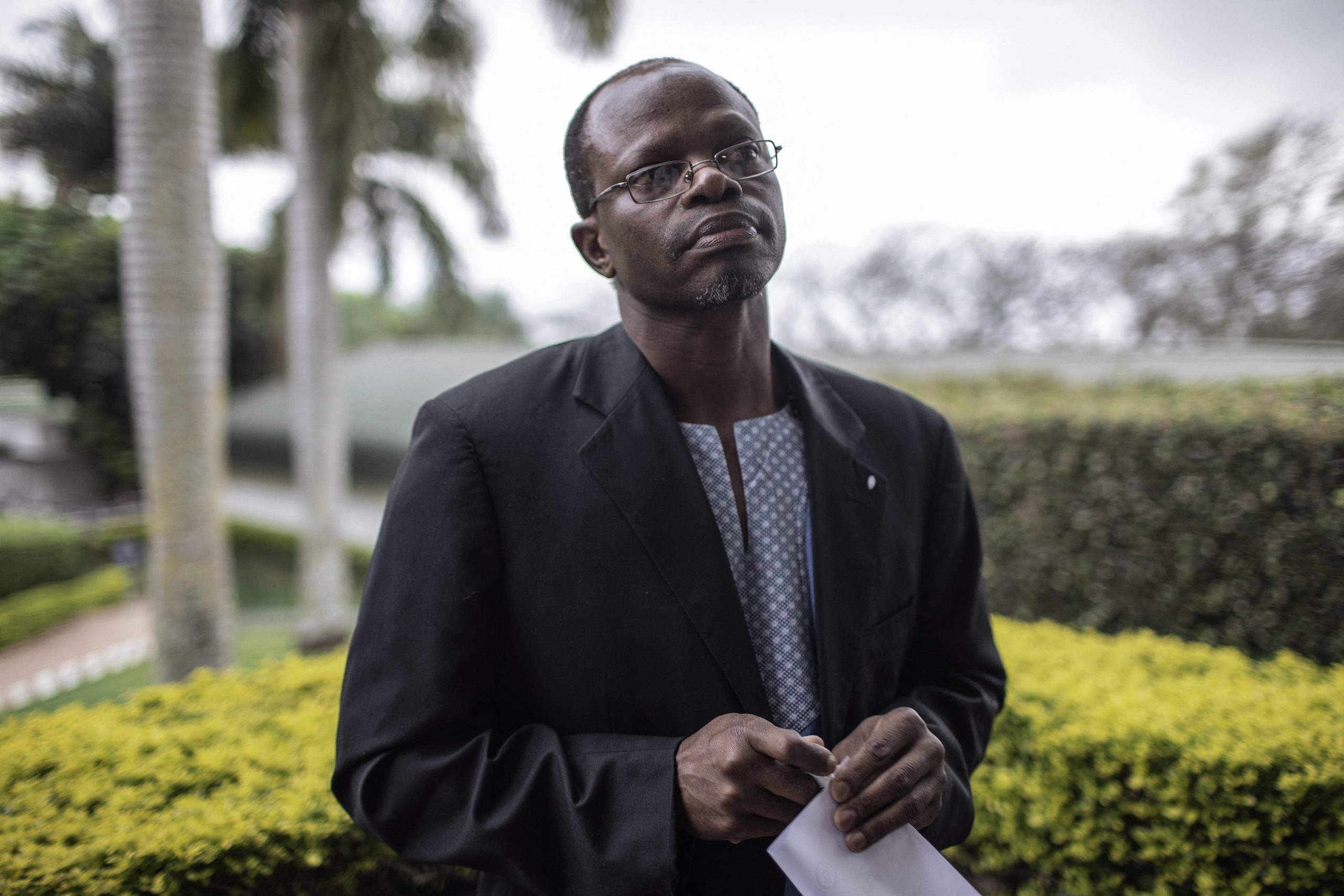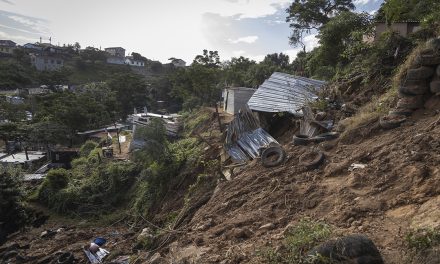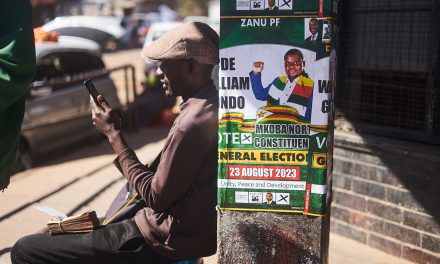Thulani Maseko, a leading human rights lawyer in Eswatini, was shot dead in his home in Manzini on Saturday evening. His wife, Tanele Maseko, and children were with him when he died. Nothing was reported stolen from the premises. Maseko was a prominent and long-time advocate for democratic reform in the country. He chaired the Multi-Stakeholder Forum (MSF) – a coalition of civil society groups, trade unions, and faith-based organisations working to amplify calls for democratic reform and a national dialogue.

(FILES) In this file photo taken on September 22, 2018 Thulani Maseko, human rights lawyer and activist, looks on as he gives an interview to Agence France-Presse in Lobamba, Eswatini. – Gunmen in Eswatini killed a prominent opposition politician and human rights lawyer at his home, a spokesman told AFP on January 22, 2023, hours after the country’s absolute monarch challenged activists opposed to his rule.
Thulani Maseko was shot dead in the night of January 21, 2023 by unknown attackers in Luhleko, around 50 kilometres (30 miles) from the capital Mbabane, opposition spokesman Sikelela Dlamini said. (Photo by GIANLUIGI GUERCIA / AFP)
Following the killing of Maseko, the government of Eswatini released a public statement condemning the killing and dissociating itself from any involvement. However, Swaziland News has reported that assassins were escorted to and from Maseko’s home by state police officers to carry out the killing. Several other human rights-based organisations have alleged the government was complicit in his death but information surrounding the incident is still emerging.
In July 2021, Eswatini was rocked by pro-democracy protests following the killing of student Thabane Nkomonye, allegedly at the hands of state police. The protests have galvanized public support for a transition away from absolute monarchy, as well as the legalisation of political parties, an end to police brutality, and other democratic reforms. Those protests were met with a violent crackdown by security forces which killed 50 people and drew widespread international condemnation from UN Secretary-General Antonio Guterres and human rights groups, while the Southern African Development Community (SADC) called for restraint and encouraged a national dialogue.
However, over the last two years, outbreaks of violence have continued while efforts to bring about democratic change have largely stalled. Eswatini remains an absolute monarchy, where the king can exercise absolute power to appoint the prime minister and cabinet and dissolve parliament. A 1973 decree banning political parties remains in force while Eswatini authorities continue to routinely use the Suppression of Terrorism Act (2008) and Sedition and Subversive Activities Act (1938) to suppress free speech and stifle criticism of the monarchy.
In July 2021, SADC sent two ‘fact-finding’ missions to Eswatini. During a working visit by President Ramaphosa later that year, King Mswati III and Ramaphosa agreed that the SADC Secretariat in collaboration with the government of Eswatini would begin drafting terms of reference for a national dialogue. However, little progress has been made on this process and the King has successfully pushed to have a discussion of the crisis taken off SADC Summit agendas preferring to handle the situation domestically.
The killing of Maseko follows a recent public address by Mswati where he declared that “demonic elements perpetrating disharmony and disrespect in Eswatini will be eliminated in 2023”, and made a number of allegations that private military contractors are being hired to capture and kill anti-government actors. Just last week, the Swaziland Solidarity Network (SNN) accused the government of hiring mercenaries, including former South African apartheid operatives, to assist its security forces in suppressing opposition parties. If the government was involved in the killing of Maseko, this would clearly indicate that Mswati has no real intention of engaging in a national dialogue and intends to try and eliminate any opposition to his rule.
In the medium to long term, the use of force by Mswati will not be able to hold back a sea of change in public opinion regarding the monarchy and a desire for democracy, and will only ratchet up levels of violence in the country. As prior reporting by Good Governance Africa has shown, public support for the king and monarchy has dropped sharply, particularly among young people who may no longer share the strong cultural ties to the institution as their parents and desire a more democratic dispensation.
Mswati is thought to be worth over $200 million dollars. He oversees a vast patronage network, and routinely appoints family members to positions of influence to enrich himself and his harem of 15 wives and over thirty children, while more than half the country’s 1.2 million population continue to live below the poverty line. The ostentatious lives of Mswati’s family members are routinely broadcast over social media.
GGA calls on Eswatini to allow for an independent and internationally supported investigation into the killing of Thulani Maseko to provide justice to his family and the people of Eswatini. GGA also calls on the government of Eswatini to cease the use of threatening rhetoric against pro-democracy actors; respect the rights of citizens to freedom of expression, association, peaceful assembly, and political participation; and urges the authorities to commence with an all-inclusive national dialogue as a matter of urgency, on terms facilitated by SADC towards national reconciliation, rule of law, respect for human rights and lasting peace.
Stephen Buchanan-Clarke is a security analyst with several years' experience working in both conflict and post-conflict settings in Africa, primarily on issues of peace and security; transitional justice and reconciliation; democratisation and governance; and preventing and countering violent extremism. He currently serves as head of the Human Security and Climate Change (HSCC) project at Good Governance Africa and is a co-editor of the Extremisms in Africa anthology series.












